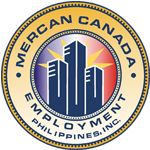Temporary residents: Dual intent
Dual intent is present when a foreign national who has applied, or may apply, for permanent residence in Canada also applies to enter Canada for a temporary period as a
- visitor
- student
- worker
Having 2 intents (initially for temporary residence and eventually for permanent residence) is legitimate. Facilitative pathways that depend on retaining temporary residents with essential skills or experience, such as Agri-Food Pilot (AFP), Caregiver pilot and Canadian Experience Class, have increasingly been relied upon as routes to permanent residence that contribute to Canada’s economic growth. This section addresses how to apply subsection 22(2) of the Immigration and Refugee Protection Act (IRPA) to the decision-making process, recognizing that the 2 intentions involved are complementary, not contradictory.
The possibility that an applicant for temporary residence may, at some point in the future, be approved for permanent residence does not remove the individual’s obligation to meet the requirements of a temporary resident, specifically the requirement to leave Canada at the end of the period authorized for their stay, in accordance with sections 179, 200, and 216 of the Immigration and Refugee Protection Regulations (IRPR).
On this page
- Assessing dual intent
- Spouses and partners
- Parents and grandparents
- Temporary residents to permanent residents program
- Refusals
Assessing dual intent
An officer should be satisfied that a temporary residence applicant has a genuine intention to fulfill their obligations as a temporary resident (namely, to leave at the end of their period of authorized stay as required by IRPR). In assessing the applicant’s bona fides, the individual circumstances of the applicant must be examined; refusals of non-bona fide temporary residents may only withstand legal challenge when the refusal is based on the information related to the specific application before an officer.
In assessing an application for temporary residence, an officer may consider, among other factors, the following:
- the length of time that the client will be spending in Canada
- means of support
- obligations and ties to the home country
- the purpose and the context of the stay
- the credibility of documents and information submitted
- past compliance with requirements of the IRPA and the IRPR that are applicable to temporary residents (visitors, students and workers), as well as information available in biographic and biometric information sharing
Assessing an application where the applicant may have a dual intent is the same as assessing any other temporary residence application. Each applicant receives the benefit of a procedurally fair, individual assessment, which takes into account the entire context of the application.
Applicants have the right to have a fair and impartial decision-maker. The courts have indicated that it is necessary to avoid even the possibility or perception of bias, examples of which may include:
- judging a matter before it is heard
- prejudicial attitude
Examples of bias would include a belief that applicants with open, closed, or prospective permanent residence applications automatically have a desire to remain in Canada past the authorized period of stay.
When an individual will be affected by a decision, that individual has the right to know the case to be met and must be given a fair opportunity to respond where procedural fairness requires. For example, a migration officer may draw inferences regarding an applicant’s intention to return based on information in previous or concurrent applications and interviews.
Spouses and partners
Officers should consider the individual circumstances of a foreign national who is seeking to join their spouse or common-law partner who is already residing in Canada.
Factors to consider include, but are not limited to,
- whether a sponsorship application has been approved, if applicable
- whether an application for permanent residence is proceeding towards approval, if applicable
- the applicant’s ongoing ties in their home country
- the result of being without status in Canada, e.g. the inability to work, inability to study, no access to health care, risk of being deported, etc.
Temporary resident application forms do not ask the applicants to explain their intent, other than asking purpose of travel, which generally does not result in a detailed explanation. However, based on the other information provided by the foreign national and presence or absence of past immigration compliance (positive) or non-compliance (negative); or lack of either (can only be considered neutral and is not a ground to cite for refusal or approval), if a spouse or partner can satisfy an officer that it is more likely than not that they will leave Canada at the end of their authorized period of stay, officers may issue a temporary resident visa (TRV).
Parents and grandparents
Officers are encouraged to consider the following when issuing TRVs, including multiple-entry visas, to parents and grandparents who
- have applications for permanent residence in process
- wish to visit but do not want to live in Canada permanently
As set out in subsection A22(2), the intent to become a permanent resident does not preclude a person from becoming a temporary resident. If a parent or grandparent intends to eventually become a permanent resident and can satisfy an officer on a balance of probabilities that they will leave Canada at the end of the authorized period of stay, in accordance with IRPR, officers will normally issue a TRV. A super visa may be issued if the applicant has provided the required documents for that type of visa (see Super visa).
See also: In-Canada applications for permanent residence in progress
Temporary resident to permanent resident programs
While some temporary residents only reside in Canada for a limited period of time, IRCC, in partnership with provincial and territorial governments, has developed various pathways to encourage and allow temporary residents to become permanent residents and remain in Canada as a first step towards becoming Canadian citizens. Several economic immigration programs are designed for applicants with Canadian work or study experience. Other programs give extra points for applicants whose work or study experience is in Canada.
Canada actively promotes these programs to foreign nationals as Canadian work experience is a strong indicator for successful settlement. In the case of study permit applicants, officers should take into consideration that the Government of Canada actively promotes study-work-permanent residence pathways to prospective students, and that prospective students (particularly Francophones) are encouraged to indicate that they wish to immigrate to Canada permanently. Indeed, many prospective students will emphasize their desire to remain permanently in Canada as they believe this bolsters their application, in response to Government of Canada messaging and advertising.
Refusals
The existence of two different intents is legitimate according to A22(2) and not, in itself, reason to refuse a temporary residence application. If the officer is satisfied that the applicant will leave Canada at the end of their authorized stay regardless of any negative outcome for an ongoing or potential future permanent residence application, the temporary residence application may be approved.
Officers are reminded to use their own judgment and the flexibility afforded to them by subsection A22(2) when making decisions on applications with a dual intent aspect. Global Case Management System (GCMS) notes should clearly demonstrate the officer’s reasoning when refusing an application.
Dual intent should be mentioned if it was considered as part of the decision on the application, with an explanation as to why the officer was not satisfied on a balance of probabilities that the applicant would leave Canada at the end of the authorized period of stay. If the officer is satisfied, taking into consideration the context outlined above, that the applicant genuinely intends to respect the conditions imposed on temporary residents, then dual intent has been established. If not, the application should be refused as per sections R179 (TRV), R200 (Work Permit), R216 (Study Permit), with failure to demonstrate bona fide temporary resident intent outlined as a concern in the application notes.
See also: Refusals overview


